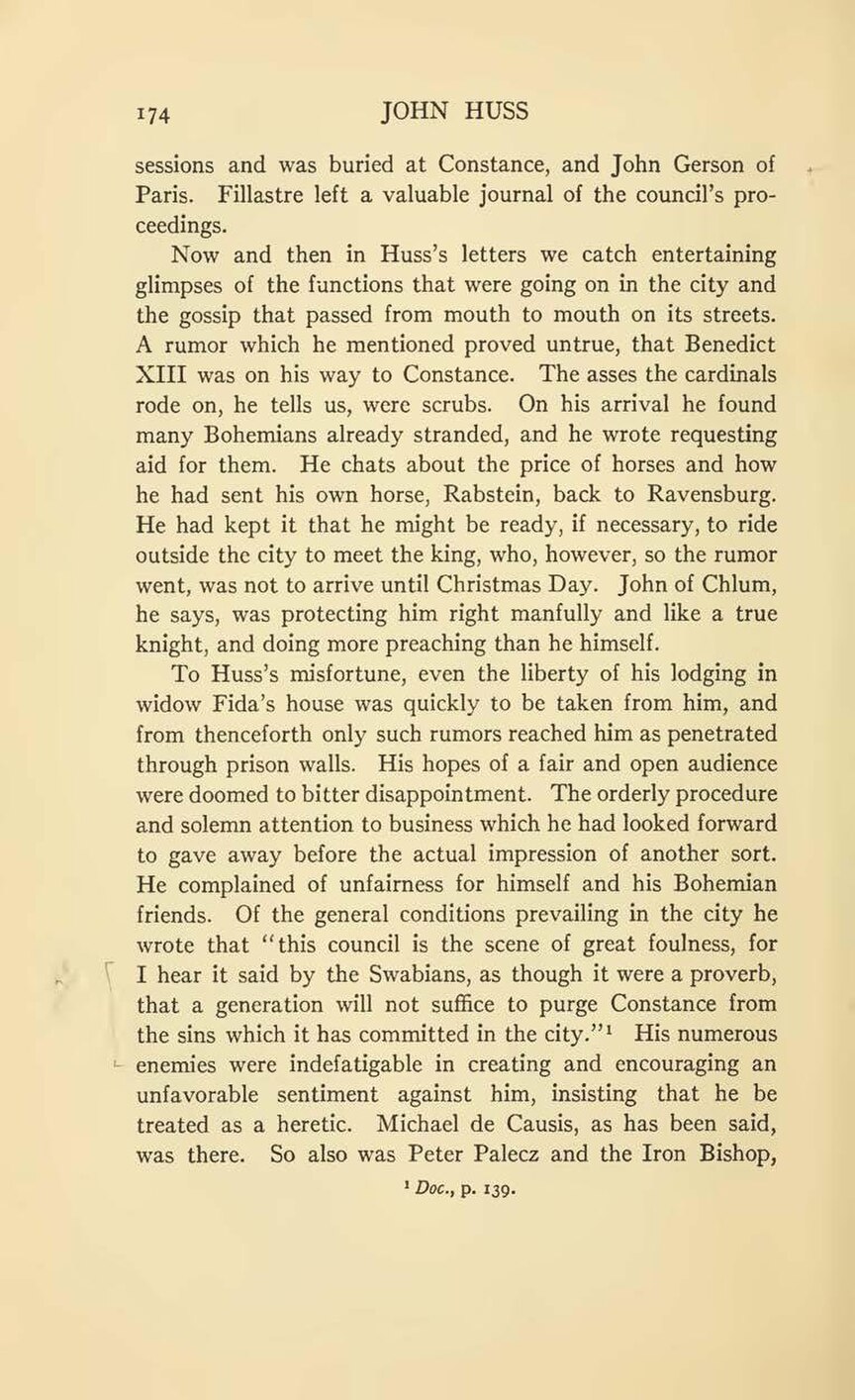sessions and was buried at Constance, and John Gerson of Paris. Fillastre left a valuable journal of the council’s proceedings.
Now and then in Huss’s letters we catch entertaining glimpses of the functions that were going on in the city and the gossip that passed from mouth to mouth on its streets. A rumor which he mentioned proved untrue, that Benedict XIII was on his way to Constance. The asses the cardinals rode on, he tells us, were scrubs. On his arrival he found many Bohemians already stranded, and he wrote requesting aid for them. He chats about the price of horses and how he had sent his own horse, Rabstein, back to Ravensburg. He had kept it that he might be ready, if necessary, to ride outside the city to meet the king, who, however, so the rumor went, was not to arrive until Christmas Day. John of Chlum, he says, was protecting him right manfully and like a true knight, and doing more preaching than he himself.
To Huss’s misfortune, even the liberty of his lodging in widow Fida’s house was quickly to be taken from him, and from thenceforth only such rumors reached him as penetrated through prison walls. His hopes of a fair and open audience were doomed to bitter disappointment. The orderly procedure and solemn attention to business which he had looked forward to gave away before the actual impression of another sort. He complained of unfairness for himself and his Bohemian friends. Of the general conditions prevailing in the city he wrote that “this council is the scene of great foulness, for I hear it said by the Swabians, as though it were a proverb, that a generation will not suffice to purge Constance from the sins which it has committed in the city.“[1] His numerous enemies were indefatigable in creating and encouraging an unfavorable sentiment against him, insisting that he be treated as a heretic. Michael de Causis, as has been said, was there. So also was Peter Palecz and the Iron Bishop,
- ↑ Doc., p. 139.
